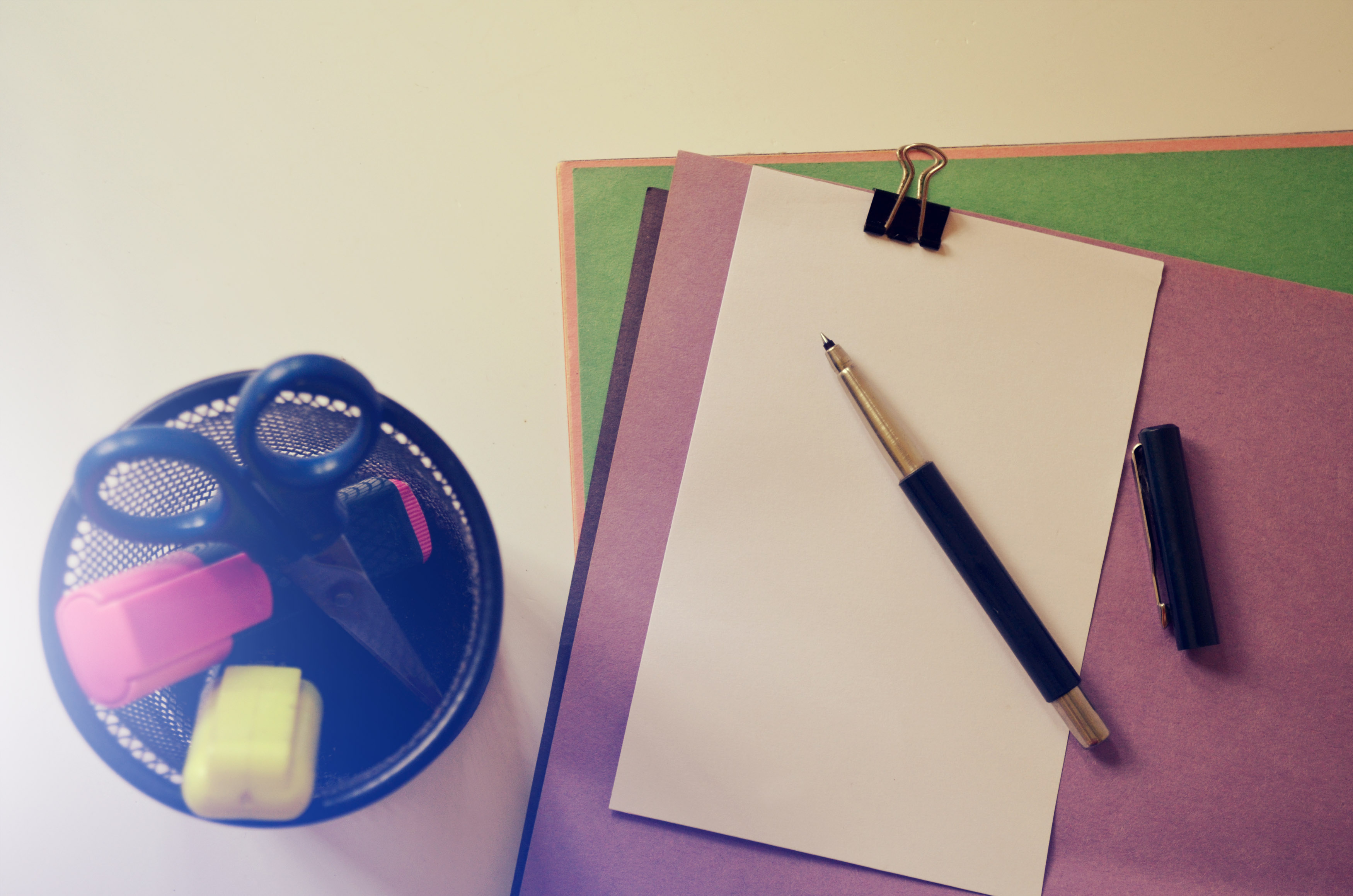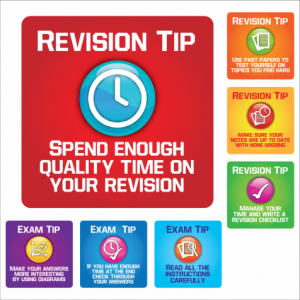For British school children, summer doesn’t start until the exam invigilator in their last exam tells them to put their pens down. The sun is finally making an appearance and you may be looking forward to a holiday in a hotter climate. However before pupils can look forward to a well deserved break, they have a few weeks of hard, stressful and frustrating revision ahead of them.
Whether its GCSEs, AS or A Levels, these tips are designed to get you (and your children) successfully through to results day.
1. Organise
The hardest and most time consuming part of revision is gathering, finding and making the materials kids need in order to successfully revise.
Reading straight from class notes isn’t going to do much, in fact, scientists believe you can only retain 10% of the information using this method.
Instead, kids can work on pulling out the most relevant information and facts and condense them into mind maps, flash cards, sticky notes and shorter pieces of text. These can then be used to read from, kids can quiz themselves and they can even ask others to test them!
2. Type 1, 2 or 3?
There are three types of learning styles. Some people learn better from seeing (visual), some from hearing (auditory) and others by doing (kinaesthetic). Finding out which method your children’s brain responds to best will help you both to understand which revision techniques will work best.
Figuring out what type of learner a child is, if they don’t know already is simple. There are lots of online tests like this one. Some of the best methods of revision for the different learning types can be found here.
3. Be the early bird
Brains best digest and retain facts first thing in the morning.
That isn’t the only advantage of getting things done early though, by starting revision earlier, kids can be done with their days work quicker and wont have to spend all day buried in text books. They’ll have extra time at the end of the day to have some downtime or go over any points from earlier that day which they weren’t 100% sure on.
Tips to help kids feel, bright, alert and awake first thing can be found here.
There’s no point in sitting down at 9am with a rumbling stomach. Being hungry isn’t only distracting but also hinders concentration levels and will make revision less effective.
The best way to start the day as a revising student is to fill up on wholesome foods such as oats and eggs which will create a slow release of energy.
PS. Keeping hydrated is just as important as fuelling the brain with food. Make sure kids are getting enough water by providing healthy alternatives to the coffee and energy drinks they might usually reach for.
5. Turn off that phone!
Phones are the easiest method of contacting friends and logging into social networks and at such a stressful time this shouldn’t be something that’s completely banned. However during revision hours its a good idea to limit, if not completely reduce the access kids have to their phones.
It might sound obvious – but question whether the revision environment is right for learning. Research shows that girls work well with background noise, but boys work better if there is a quiet atmosphere.
There are plenty of revision playlists to pick from- we suggest instrumental music like this one suggested by The Guardian.
7. Look, listen and support
Kids are under a huge amount of pressure during the lead up to exams. If your child is looking particularly stressed or acting out, suggest going on a walk together or run them a bath. That really is all it takes to reduce stress levels back down to a more average level. This is also a great way to show your support, letting them know you’re there if they need anything.
Make sure you know about the more serious side affects of exam related stress and what to do if your child is suffering.
8. Watching TV, playing that new game and talking to friends
This is all okay and actually a great idea for kids as a way to let off some steam after a day of working hard on the maths or history topics they don’t enjoy.
Just make sure they keep it at sensible levels and don’t try to avoid revision by preoccupying themselves with other things.
9.Normal Routine
This essentially means sleeping patterns, make sure kids aren’t going to bed late and getting up a few hours after they usually would during normal school time.
Doing this will throw their sense of time off balance and will mean they’re waking up less ready to face the day.
10. Slow and steady wins the race
Try to encourage children to start gentle preparation early on in the exam process. Even if its just making sure they keep all of the relevant notes from classes so that they can find out what they need to know to make revision notes quickly when the time comes.
Bonus tip
Reassure children that it really isn’t the end of the world if they don’t achieve the grades they would like. There are plenty of people that didn’t do amazingly well in school but did great in life- children might recognise some of these names.
• Winston Churchill, British prime minister
• Abraham Lincoln, US president
• George Bernard Shaw, author and playwright
• Thomas Edison, inventor of the light bulb
• Leo Tolstoy, writer of War and Peace
• Walt Disney, creator of Mickey Mouse
• Richard Branson, British tycoon
• Michael Faraday, pioneer of electromagnetism
GCSE revision resources
Exam board websites, for past papers






